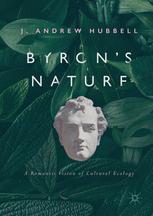

Most ebook files are in PDF format, so you can easily read them using various software such as Foxit Reader or directly on the Google Chrome browser.
Some ebook files are released by publishers in other formats such as .awz, .mobi, .epub, .fb2, etc. You may need to install specific software to read these formats on mobile/PC, such as Calibre.
Please read the tutorial at this link: https://ebookbell.com/faq
We offer FREE conversion to the popular formats you request; however, this may take some time. Therefore, right after payment, please email us, and we will try to provide the service as quickly as possible.
For some exceptional file formats or broken links (if any), please refrain from opening any disputes. Instead, email us first, and we will try to assist within a maximum of 6 hours.
EbookBell Team

4.3
8 reviewsThis book is a thorough, eco-critical re-evaluation of Lord Byron (1789-1824), claiming him as one of the most important ecological poets in the British Romantic tradition. Using political ecology, post-humanist theory, new materialism, and ecological science, the book shows that Byron’s major poems—Childe Harold’s Pilgrimage, the metaphysical dramas, and Don Juan—are deeply engaged with developing a cultural ecology that could account for the co-creative synergies in human and natural systems, and ground an emancipatory ecopolitics and ecopoetics scaled to address globalized human threats to socio-environmental thriving in the post-Waterloo era. In counterpointing Byron’s eco-cosmopolitanism to the localist dwelling praxis advocated by Romantic Lake poets, Byron’s Nature seeks to enlarge our understanding of the extraordinary range, depth, and importance of Romanticism’s inquiry into the meaning of nature and our ethical relation to it.